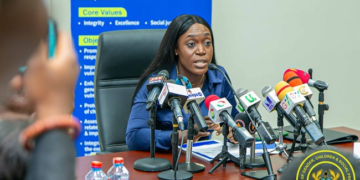President Nana Addo Dankwa Akufo-Addo has officially signed the Affirmative Action (Gender Equity) Bill 2024 into law, marking a monumental step in Ghana’s quest for gender parity.
The bill, which had been under parliamentary consideration since 2011, received unanimous approval from lawmakers on July 30, 2024, and has now been given the Presidential assent, as confirmed by the Minister of Gender, Children and Social Protection, Dakoa Newman X today.
The Affirmative Action (Gender Equity) Bill represents a transformative leap in Ghana’s legislative landscape, seeking to address long-standing gender imbalances across the nation’s political, social, economic, and cultural arenas.
The legislation, first introduced in Parliament in 2016, is designed to boost women’s representation in governance and decision-making roles, striving for increased diversity and equal opportunities for underrepresented groups.
The bill sets ambitious gender representation targets, mandating a 30 percent female representation in public offices by 2026, 35 percent by 2028, and 50 percent by 2030. This includes appointments to governance positions, leadership roles, and various other sectors.
Despite women comprising over half of Ghana’s population, they currently hold only 13.8 percent of parliamentary seats and less than 30 percent of key ministerial and institutional positions.
Incorporating international standards, the bill aligns with conventions such as CEDAW and the African Charter on Human and Peoples’ Rights.
It mandates gender-responsive budgeting, requiring all government entities to address gender-specific issues, and enforces progressive gender equality targets within political parties, including support for women in candidate nominations and leadership positions.
Furthermore, the bill addresses educational disparities by ensuring gender balance in access and opportunities at all educational levels.
It includes provisions for gender equality curricula, programs to overcome barriers for girls, and targeted support to enhance girls’ education in underserved areas, thus laying the groundwork for a more inclusive and equitable society.

































